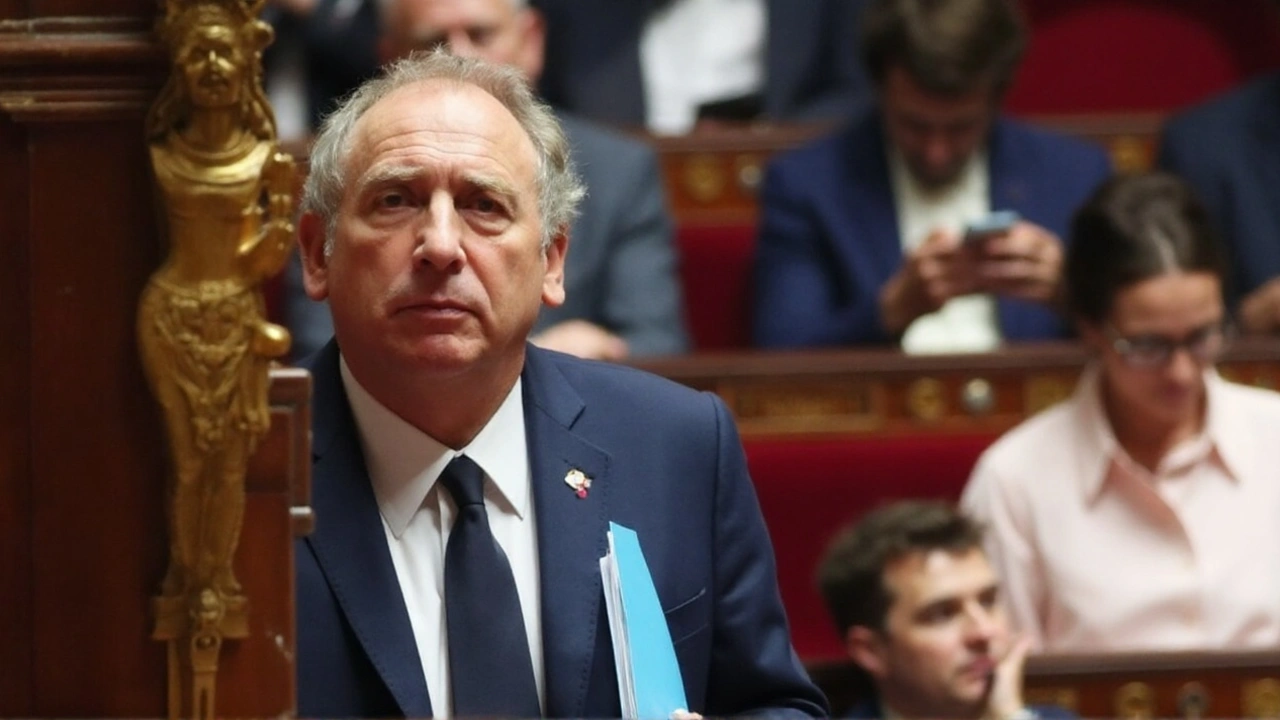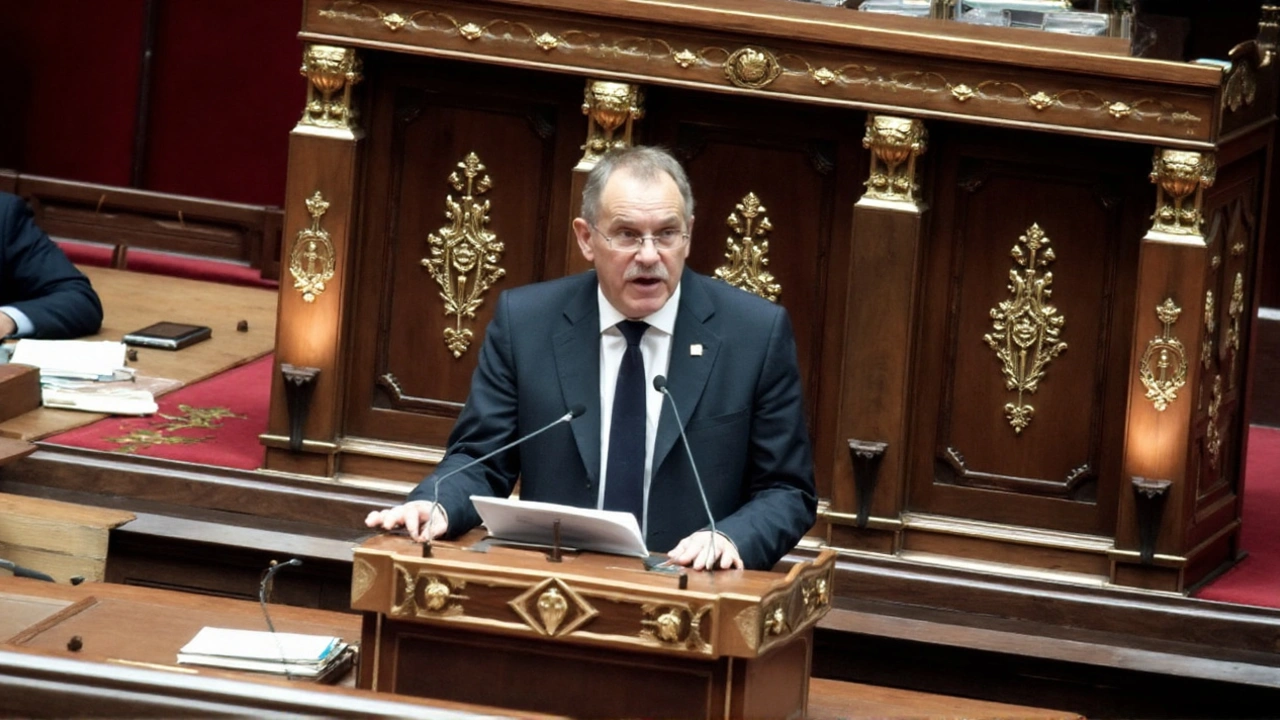A rare confidence vote backfires
François Bayrou’s gamble to break a budget deadlock ended with a thud. On Monday, MPs in the Assemblée Nationale voted 364–194 against his government after he personally called a confidence vote that he hoped would force movement on his austerity plan. Nine months after taking office, he is out, and France is once again hunting for a prime minister.
Bayrou will present his resignation to President Emmanuel Macron on Tuesday morning, making him the sixth head of government to serve under Macron since 2017. The margin of defeat was stark in a 577-seat lower house: 364 noes easily cleared the 289 votes needed to topple a government, while only 194 stood with the prime minister. That tally underlined how isolated he had become, with parties from the left, the center-right, and the far right lining up to shut the door on his program.
The trigger was the July budget blueprint: €44 billion in cuts over three years aimed at reining in the deficit and stabilizing debt. Pensions and healthcare bore the heaviest load. Bayrou framed it as unpleasant but unavoidable medicine, describing France’s debt trajectory as “life-threatening” and warning MPs they could dismiss his cabinet but not the arithmetic. The pitch didn’t land. Weeks of combative debate hardened positions and stoked public anger, especially after a bruising pension overhaul in 2023 that already raised the retirement age.
Calling the vote himself was a high-wire act. French governments often try to sidestep hostile parliaments using constitutional tools to push budgets through. Bayrou chose confrontation instead, arguing that drifting would be riskier than staking his mandate. The spectacle in the chamber—cheers from opposition benches, icy silence on the government’s side—showed how decisively the bet failed.
The opposition’s unity was tactical, not ideological. Left-wing MPs rejected cuts to hospitals and social benefits as backwards at a time of stretched emergency rooms and rising living costs. Conservatives blasted what they called a rushed, numbers-first plan without structural reforms to boost growth. Far-right lawmakers cast the package as punishing ordinary families while sparing elites. Different reasons, same result: down went the government.

Debt math meets political gridlock
Behind the drama sits a stubborn fiscal picture. France’s debt hovers around the size of its annual economic output, and deficits widened in the pandemic and energy-crisis years. Rating agencies have flagged slippage since 2023, and EU budget rules—revived after a pandemic pause—are pushing capitals to present credible plans to shrink deficits. That’s the terrain Bayrou walked into when he chose deep, visible cuts rather than gentler savings spread across many line items.
Healthcare was always going to be a flashpoint. Hospitals are still wrestling with staffing shortages and backlog care. Bayrou’s blueprint tried to slow spending growth, tighten procurement, and shift more costs to supplemental insurers. Health groups warned that would mean longer waits and fewer services outside big cities. The numbers might add up on paper, they argued, but at the bedside the trade-offs would bite.
Pensions were an even hotter coal. The 2023 law lifting the legal retirement age to 64 left scars. Bayrou sought further savings through changes to indexation and special regimes, paired with incentives to keep seniors in work longer. To many voters, that felt like a second bite at the same apple. Unions denounced it as austerity by another name and promised to fight line by line.
Macron now has to pick a new prime minister—his seventh—and figure out a governing path through a fragmented house. The constitution gives him latitude: he can appoint a loyalist and dare the assembly to reject them, recruit a consensus-seeker from outside his camp, or explore a written pact with parts of the opposition for limited reforms. None of those options are easy. A minority government needs votes to pass every major text, and the next one is the most sensitive of all: the annual budget.
Timing is tight. France must file its next-year budget bill in early autumn. If a new team can’t assemble a majority, the country risks limping into winter with stopgap spending and a bruised reputation in bond markets. Investors will watch the spread between French and German government borrowing costs for signs of nerves, and any hint of further downgrades would raise financing costs just as the treasury needs stability.
There’s also the foreign-policy angle. Macron has positioned himself as a central broker on Ukraine, shuttling between European capitals and Washington. A government collapse doesn’t halt that work, but it complicates it. Foreign partners look for a counterpart who can deliver at home—approval for aid, money for defense, and continuity in policy. A caretaker cabinet can manage routine affairs, yet big choices will require a fresh mandate in Paris.
How did Bayrou misread the room? Part of it is style. His message was austere, almost technocratic: numbers, projections, and warnings. That played poorly after years of social strain. The political map didn’t help. With the assembly split into rival blocs and no stable majority in sight, any policy that asks for sacrifice becomes a magnet for cross-party resistance.
Still, the underlying pressures haven’t gone away. The European Commission has opened excessive deficit procedures for several member states, and France’s medium-term plan will be scrutinized. The welfare state is expensive, demographics are shifting, and growth has been uneven. Whether the next prime minister leans left or right, the choices will circle back to the same questions: how fast to cut, where to invest, and who pays.
Don’t expect a carbon copy of Bayrou’s plan, though. Politically, the next blueprint is likely to pair budget restraint with visible carrots—targeted tax credits for work and investment, support for hospitals, and protections for low-income households. Another route is sequencing: a smaller, trust-building package this autumn with a clearer multi-year fiscal anchor negotiated with opposition committees to spread ownership of the pain.
There’s also the perennial talk of institutional tools. Recent governments have leaned on constitutional levers to push budgets past hostile assemblies. Each use stokes anger and chips away at the sense of parliamentary control. Given the scale of Bayrou’s defeat, any successor will be cautious about starting their tenure by lighting that fuse again.
For voters, all this can feel like déjà vu: reshuffles, brinkmanship, then another reset. But the stakes are real and immediate. Hospitals need funding decisions now, not in six months. Local authorities are waiting to see if transfers will be cut. Businesses need clarity on payroll taxes and energy support ahead of investment decisions. Every week without a stable government tightens the screws.
One overlooked piece is trust. After a cycle of reforms pushed through despite street protests, public faith is thin. The next prime minister will need a different tone—more consultation, fewer ultimatums—and a clearer map from short-term belt-tightening to long-term gains. Absent that, the same arithmetic that sank Bayrou could sink his successor, too.
For the moment, the choreography is set: resignation at the Élysée, talks with party leaders, trial balloons for potential premiers, and a draft budget waiting in the wings. Markets, unions, and European partners will all be reading the same thing—whether Paris can stitch together a coalition, however fragile, to own the next set of numbers. If it can’t, France’s fiscal problem risks becoming a political crisis on repeat.

Chris Ward
September 10, 2025 AT 17:45Well, I guess a little austerity never hurt any counry, right?
Heather Stoelting
September 10, 2025 AT 18:50Great job on the article! It really shows how tough decisions can push us forward
Travis Cossairt
September 10, 2025 AT 19:56Honestly i think the whole thing is just a big mess its like watching a drama where nobody reads the script im not surprised the vote fell apart
Amanda Friar
September 10, 2025 AT 21:03Oh sure, because slashing pensions and hospitals is the perfect pep‑talk for morale. Nothing says “we care” like cutting the safety net, right?
Sivaprasad Rajana
September 10, 2025 AT 22:10The recent vote shows how fragile the French political balance has become.
When a government tries to force a budget through a confidence vote, it often backfires.
The public is already angry about cuts to health and pensions.
Many citizens feel the numbers are being put above real lives.
That feeling makes any austerity plan a hard sell.
The opposition parties united not because they share the same ideas but because they all want to stop the cuts.
Left‑wing MPs see the plan as a blow to social services.
Centre‑right members view it as too abrupt and lacking growth measures.
Even far‑right legislators claim the plan punishes families while protecting elites.
This broad coalition of dissent highlights a deeper problem with how France handles its debt.
Debt that equals the country’s yearly output is a warning sign for any economy.
The European Union expects member states to keep deficits under control.
Without a stable government, France risks higher borrowing costs.
Investors watch the spread between French and German bonds for any sign of trouble.
A new prime minister will need to negotiate with many factions to get any budget passed.
Otherwise the country may end up with temporary stop‑gap spending that does not solve the underlying fiscal strain.